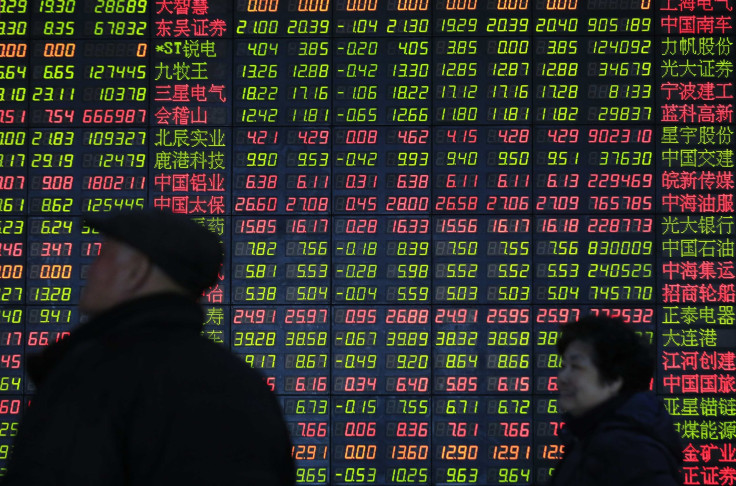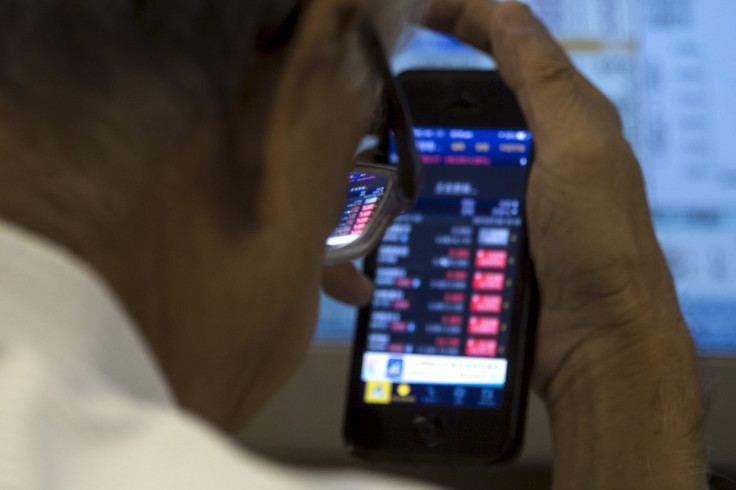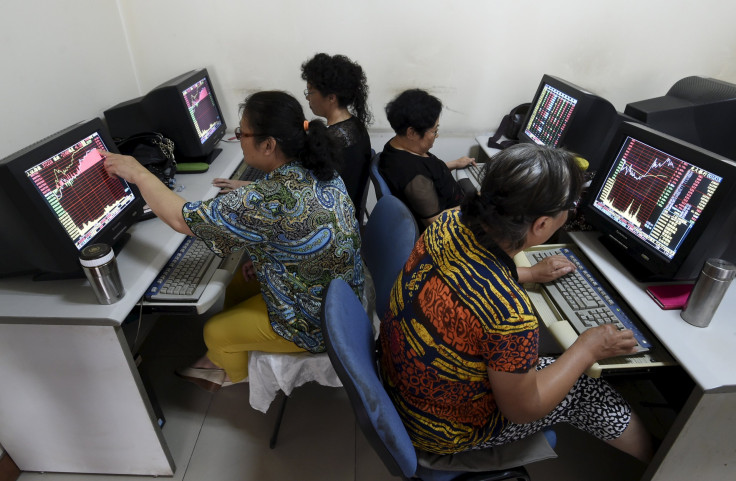Some Chinese Stock Market Investors Still Put Their Faith In The Government, But For Others Trust Is Running Out

SHANGHAI -- In the small cafe he runs on a Shanghai side street, Wu Liang is doing what he always does when there are no customers – sitting at the corner table, looking at his laptop, watching the share prices on the Shanghai and Shenzhen exchanges. The difference today is that he has a smile on his face: after falling for almost a month and losing a third of its value, the Shanghai market is up, recovering almost all of its losses from the day before.
“I think the market’s going to be OK,” Wu says with a grin. “I’ve still made a bit of money over the past few months. And now the government’s got all these policies to help us – so I’m planning to hold on to my shares.”
Wu is in his 40s, but only began playing the market a few months ago – catching the boom that saw the main Shanghai Composite Index rocket from just over two thousand points little more than a year ago, to more than 5000 on June 12 this year. He’s one of tens of millions of new investors who poured into the market as it climbed in recent months – in May alone 12 million new accounts were opened.

“Everyone who comes to the cafe has been talking about the market recently,” said Wu. One Shanghai newspaper this week described China’s stock market investors as behaving as though they were part of a mass movement – as soon as the market begins to boom, “every office, every card and mahjong room, every dining table, even some school desks – becomes dominated by talk of the market,” said a commentary in the Xinmin Evening News.
But many experts say this rush of new investors is part of the problem: with little memory of China’s previous boom and bust cycle in the last decade -- when the market lost two-thirds of its value between 2007-8 -- investors rushed to buy almost shares in almost any listed company, pushing stock prices sky-high. As soon as share values dropped back they either panicked – China’s regulator this week blamed recent falls on panic-fueled “irrational selling” – or were simply so overexposed from borrowing to buy shares, that they had to sell their holdings to repay these loans.
Another factor contributing to the surge of new investors, and their sometimes casual approach to market risk, is the belief – which goes back to the days of China’s planned economy, and the launch of the country’s first stock market in the early 1990s – that if the powerful central government wants to have a market, it must want it to do well, and will therefore step in to save it if things get tough.
That theory was disproved in 2008, when the market slumped to less than 2,000 points from more than 6,000 the year before – but even some of those who experienced the crash still appear to believe in the power of the state. A little further down the street from Wu’s cafe, Wang Xiulan, a stationery store owner in her late 50s, seems genuinely excited about the market’s prospects following Thursday’s rebound:
“This is a great time to buy,” she said. “The market’s hit the bottom – I think it’s going to keep going up now. I bought some more shares today!” Wang laughs at the idea this is a gamble. “If you want to make some money, you’ve got take a little risk,” she said. “But I believe the government will back up the market.”

Not everyone is quite so certain: on a nearby street, Sam Liu, a hairdresser in his mid-30s, was sitting outside his salon, checking share prices on his smartphone as he waited for customers. “I’ve invested in the market for years,” he said. “But I missed my chance to sell a couple of months ago – I thought the market would go even higher. So now I’m just going to hold onto my shares, and hope for the best.”
Some observers say there’s no particular reason the market should continue to rebound. Shanghai-based economist Andy Xie told International Business Times this week that he believed the market’s natural level might be around 2,500 points, only some 20 percent higher than where it was when it began the boom last year – and way below the 3,709 where it ended Thursday trading.
The Chinese government is doing its best to dismiss such views. While some officials and state media have warned investors of risk on occasions in recent months, official commentaries have also encouraged the belief that the market is ready for a prolonged boom. And policies have encouraged borrowing to buy shares: until a few months ago, individuals could only hold an account with one brokerage, but now they are allowed to open more than twenty. After tightening rules on margin trading two months ago, regulators last week relaxed them.
The government has also mobilized what Chinese media describe as “the national team” – the central bank and other state run lenders, along with big state enterprises and investment funds – in a pledge to prop up the market by extending the deadlines for borrowers to repay loans and by promising to buy more shares.
Yet while some small investors have not given up on the market, other members of China’s new middle class have been harder hit.
“Some of my friends went crazy when they saw the growth in recent months,” said Jennifer Xi, a Shanghainese officer worker in her late 20s. “When you saw the market booming, it was hard to keep rational – everyone was talking about it.”
And with few other domestic financial products available to Chinese investors, and few opportunities to invest abroad, along with a property market that has been flat for two years, Xi said it was inevitable that many of her friends had plunged into the stock market.
“Some people I know put all their savings into the market,” she said. “Some borrowed money to invest: they took out loans from banks – or sometimes from underground banks, because that was easier.”
Xi used to invest but says she has been much more cautious since the 2008 crash, described the situation in recent weeks as “extremely painful. Some of my friends are complaining about the market now – but others are just making jokes about it: I think what’s happened is just so painful that they can’t actually feel the pain.”

For the government, it’s the fear of such pain turning into anger that have encouraged this week’s moves to delay repayments on loans. There are signs that the market crash is having a knock-on effect on aspects of some people’s lives, and of the economy: some high-end real estate transactions in Shanghai have been canceled in recent days, as investors’ share holdings have lost value, according to local news reports.
Jennifer Xi said one impact, for many of her friends, is a loss of confidence in the government’s ability to prop up the market. “This has ruined trust,” she said. “A lot of individual investors were waiting for the government to make the market go up last week – and it didn’t. Now they know that what the government can do is limited.”
Xi added that she was concerned by some of the measures the authorities have taken – such as encouraging the managers of listed companies to borrow money to buy more shares, to help stabilize their firms’ stock price, and by the suspension of trading in half of the companies listed on China’s market. “It’s incredible that they can do this,” she said. “I’m quite worried about it.”
There have already been criticisms by Internet users of the official People’s Daily newspaper, for publishing articles predicting a long-term bull market when the market was at 4,000 points back in April, before its further rise – and fall.
There are also reports that the authorities have had to delete online calls for the head of China’s stock market regulatory body to stand down.
The critical online voices are a reminder that a continuing stock market fall could be harder for the Chinese authorities to handle – as the government faces a more outspoken population with higher expectations of the government than in the past.
© Copyright IBTimes 2024. All rights reserved.






















